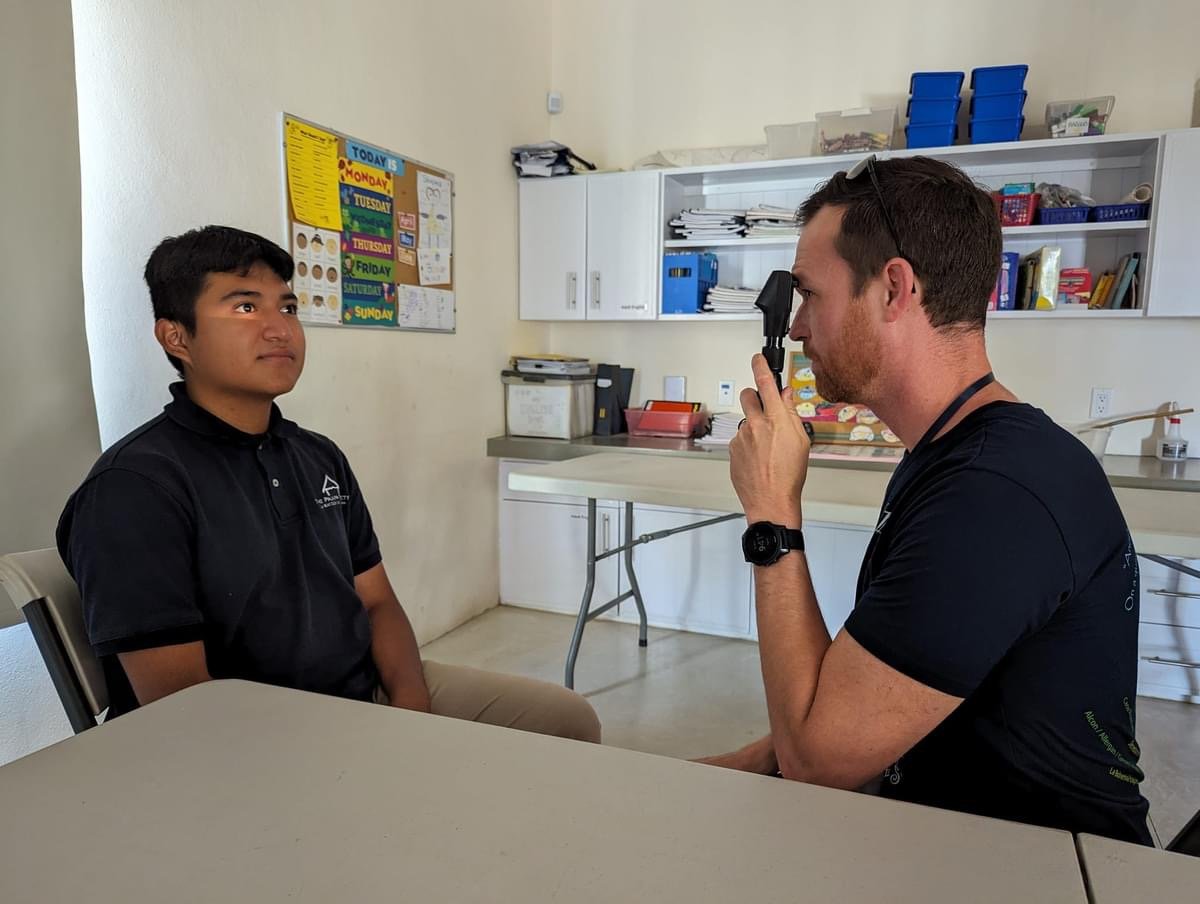
Creating access to retina specialists and treatment changes lives.
“In a world built on the ability to see, vision, the most dominant of our senses, is vital at every turn of our lives.”
— Dr. Tedros Adhanom Ghebreyesus
Director-General, World Health Organization
Our lives are profoundly shaped by our vision.
Having clear eyesight empowers us to lead lives characterized by greater self-sufficiency, access to education and employment prospects, and active participation in our communities. The transformative impact of clear vision extends beyond individual well-being, creating a ripple effect that enhances societal productivity and fosters a more inclusive, thriving community for everyone. We aim to unlock these possibilities and contribute to a world where the benefits of clear vision are accessible to all. Your support becomes a catalyst for positive change, enabling us to reach even more individuals and make a lasting impact on the global landscape of eye health and well-being.
Seeing is believing.
The global vision crisis of impaired vision is one of the most frequently underestimated health challenges in the world. Globally, the WHO approximates that at least 2.2 billion individuals contend with some form of vision impairment, and at least 1 billion of them are preventable. Recognizing the magnitude of this crisis is paramount, as it underscores the urgency of collaborative efforts to create sustainable solutions and ensure that no one is left behind in the pursuit of a clear vision. Moreover, the staggering scale of preventable vision issues demands a united front, urging us to advocate for increased awareness, accessible eye care services, and global collaboration to alleviate the burden on individuals and communities worldwide. This not only enhances individual well-being but also contributes to building a more inclusive and equitable world.
What is the retina?
The retina, located at the back of the eye, acts as a light-sensitive tissue that processes visual information before transmitting it to the brain, playing a crucial role in the sense of sight. A remarkable 70% of people with retinal diseases, such as diabetic retinopathy, experience vision problems that could be managed or prevented through early detection and treatment. Regular eye examinations play a pivotal role in identifying retinal issues at their early stages, enabling timely intervention and improving the chances of successful management. By emphasizing the importance of routine eye check-ups and educating individuals on the signs and risks associated with retinal diseases, we can detect and manage retinal diseases much earlier, thereby preserving vision and overall eye health.
Breaking Barriers, Transforming Lives
89% of those affected by uncorrected retinal diseases and disorders live in low- and middle-income countries. The absence of accessible retinal health services, limited distribution of essential treatments, and financial barriers create ongoing hardships that could be immediately alleviated through timely intervention and medical advancements. Bridging this gap requires a concerted global effort and advocating for increased resources, and fostering international collaboration to ensure that individuals in underserved regions have equitable access to life-changing retinal care. Addressing these disparities is essential for promoting vision equality for all.
With your help, a solution is in sight.
Neglecting retinal care has far-reaching consequences, including decreased productivity, economic instability, limited educational opportunities, and compromised personal autonomy. Although it stands as a significant global health issue in our era, impaired vision caused by retinal issues is also one of the most solvable challenges.





